TheCatSite member and moderator @Norachan wrote this article about how to help stray and feral cats in Japan. She currently lives there with her husband and 22 cats.
A Lifelong Love for Cats
I come from a family of animal lovers. Growing up in the UK we always had pets. They were usually strays or shelter cats that found their way into our hearts and home.
So it's probably no surprise that even after I moved to another country, stray cats in need of help managed to find me.
I took in my first feral kitten, The Mu, almost ten years ago now. Ever since then, I've been trying to help feral cats.
The Cultural Context: Cats in Japan
If you are one of the thousands of people who come to Japan every year to work or study, chances are you will soon notice how many cats there are in this country.
Traditionally, Japan sees cats as a good omen. Visitors today will no doubt see the "Beckoning Cat" statues in many stores and restaurants. They will also see other signs showing that the cat is a much-loved animal in Japan.
Japanese Cat Cafes are well known. A few of the so-called Cat Islands, where feral cat colonies thrive, have become a tourist attraction.
Some railway stations have even adopted stray cats and given them the honorary title of station master.
The Challenges Faced by Feral Cats
Most pet cats are indoor only, but you will probably notice a lot of feral cats if you look closely.
Although feral cat colonies are tolerated in some parts of Japan, it is not uncommon for cats to be trapped and euthanised by city officials if local residents complain about them.
What is more, like most feral cat populations, the cats suffer from diseases, are at risk from other animals and traffic and often have a tough time surviving the hot summers and freezing winters the country is known for.
SIGN UP FOR THECATSITE'S EMAIL UPDATES >

Feral Cats: How you can help
The most obvious way to help feral cats is to provide them with food, water and a safe place to shelter. But, before you do anything else it is essential to make sure the number of feral cats doesn't increase.
It is important to make sure the cats are spayed and neutered.
This will prevent more kittens being born into the world as feral cats. It will also ensure that the existing cats are healthier and less likely to come to any harm.
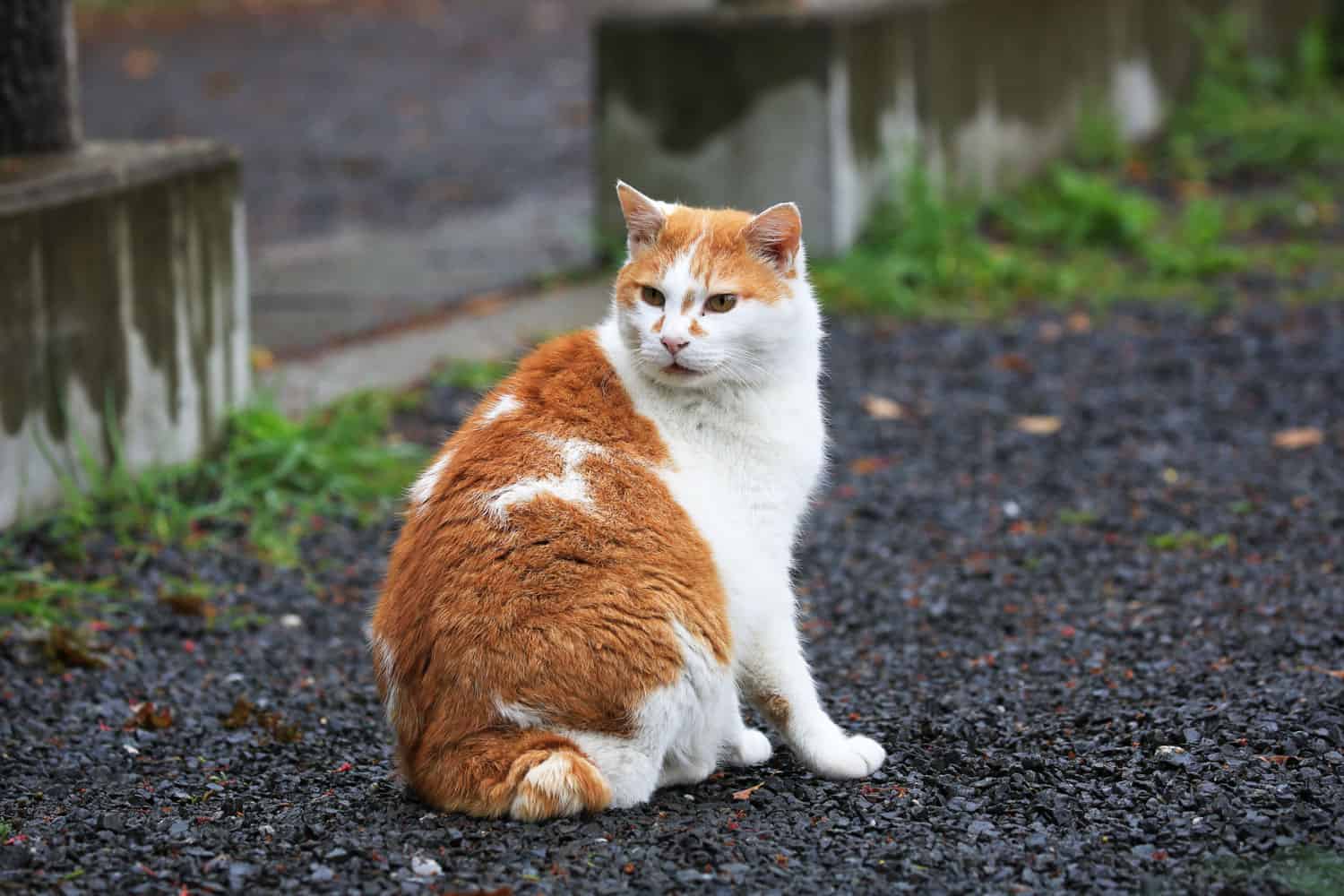
TNR = Trap-Neuter-Return
Trap-Neuter-Return programs are gradually becoming more common in Japan.
Tokyo Governor Yuriko Koike has pledged to reduce the number of stray cats and dogs euthanised by the city to zero in time for the 2020 Tokyo Olympic Games.
The Metropolitan Government offers subsidies for spay and neuter operations. Details vary depending on which Tokyo ward the cats are in.
Bunkyo ward, for example, covers the whole cost of spaying or neutering "Nora Neko", feral cats, and "Chiki Neko", community cats.
Other wards offer subsidies for spaying and neutering, regardless of whether the cat has an owner. If you are fortunate enough to live in Tokyo, contact your local ward office and ask for their help.
Getting Help
If you are in other areas of Japan it may still be possible to get the help of a TNR group.
Campaigns such as Box Ryunosuke, run by veterinarian Ryunosuke Tokuda in Kumamoto, trap and spay/neuter thousands of animals every week.
The information here is in Japanese, but translations are available if you follow the link to the Facebook page.
殺処分ゼロ Box竜之介
The Japan Cat Network, based in Fukushima, also runs TNR programs. They also offer help to others who plan to set up programs by themselves. Information is available in English.
The best way to find out what has been set up in your area is to contact your local town or city hall.
Even if there are no official spay and neuter programs in place, city officials may know of local residents who care for feral colonies. They could also help you with trapping or recommend a "feral-friendly" vet.
Don't worry if you don't speak Japanese. Big cities will have English-speaking staff at all the main city offices. Or, they will be able to arrange for a translator to come in and talk to you.
In smaller towns you might have to ask a Japanese friend or neighbor to either go with you or call and ask what help there is for feral cats.
Feeding The Ferals: What you should know
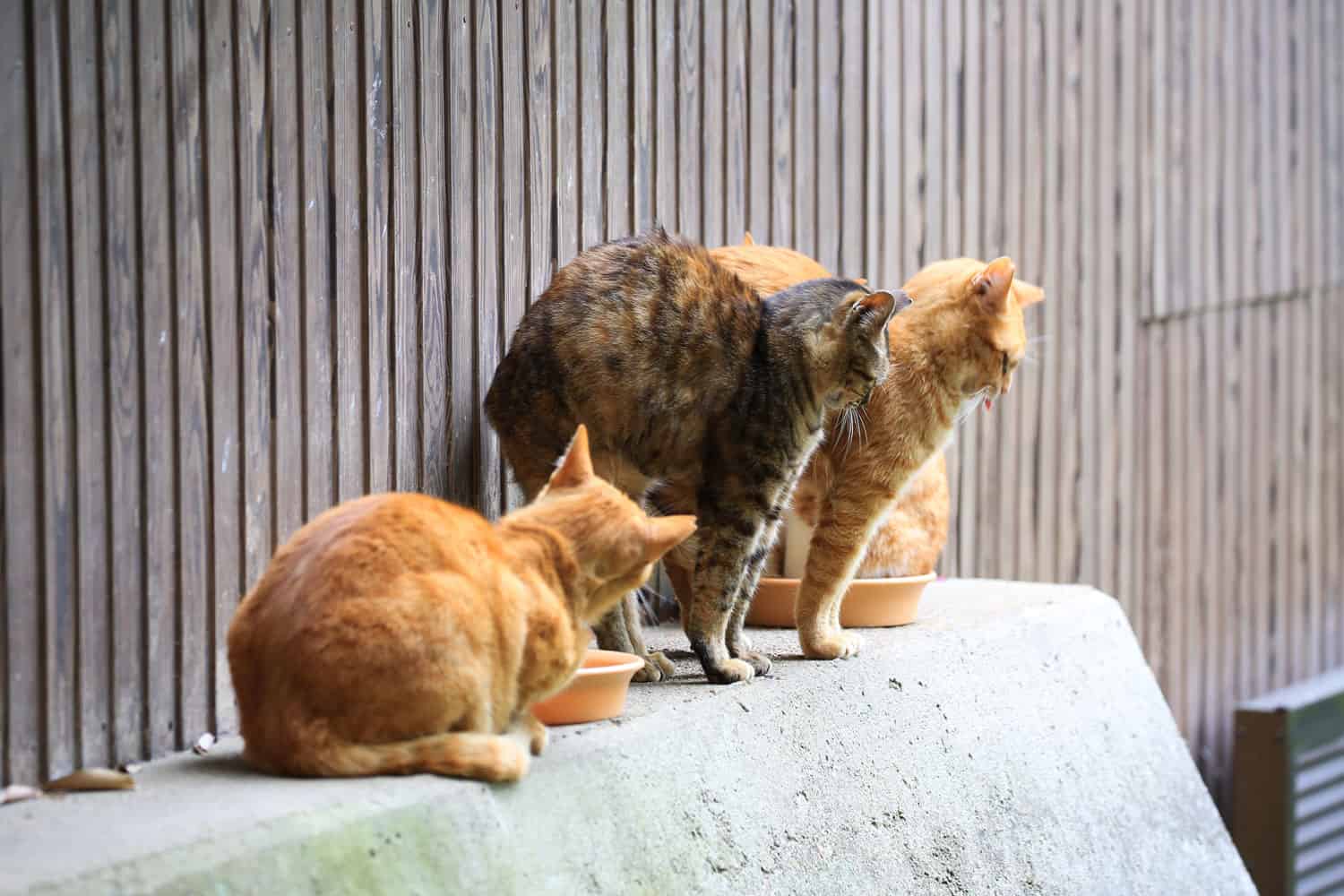
There is no law against feeding feral cats in Japan. If you are in rented accommodation your landlord can ask you not to feed feral cats on the premises.
If you are feeding the cats in a public place, such as a park, you are unlikely to have anyone complain about you as long as you don't leave any mess behind.
Some parks have signs asking people who feed the cats to clean up after themselves.
If you own your own house or if you have permission from whoever owns the land you can feed cats, but please be considerate of your neighbors.
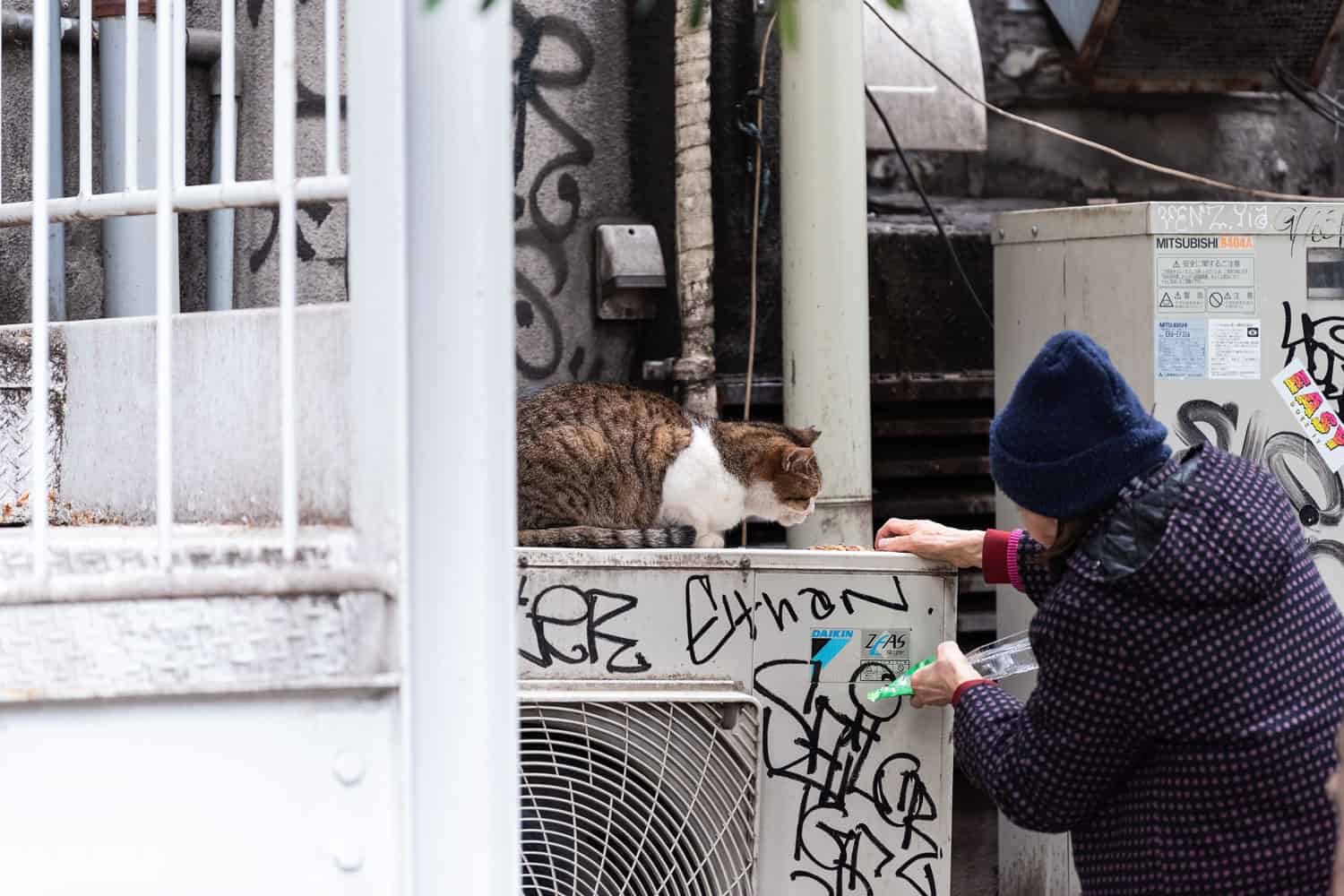
If you feed be careful not to leave bowls or dishes around and remove any uneaten food. Leaving food will attract crows, flies and cockroaches.
You should also be prepared to clean up after the cats go to the toilet. Feral cats don't usually go to the toilet where they eat. But, they will move a few meters off and use a patch of earth as a litter box.
Make sure that you scoop this place just as you would a litter box. No one wants cat poop in their flower beds or the parks where their children play.
Rehoming: The Dos and Don'ts
Whether you are caring for feral cats or come across an unwanted pet it's very likely that you'll need to find homes for some of them. What should you do if you find yourself temporarily caring for cats or kittens that need a forever home?
If you have younger cats that would be suitable as pets there are several options.
Some shelters will accept cats and kittens and try to find homes for them. ARK (Animal Rescue Kansai) is one such shelter. They have offices in Tokyo and Osaka and have several English-speaking staff.
Animals are placed in foster homes while they wait for the right person to adopt them.
This is an excellent shelter but, like most shelters in Japan, before accepting cats for adoption they ask that they are blood tested for FIV and FeLV and have been vaccinated.
They also ask for a sizeable donation towards the cats' future care.
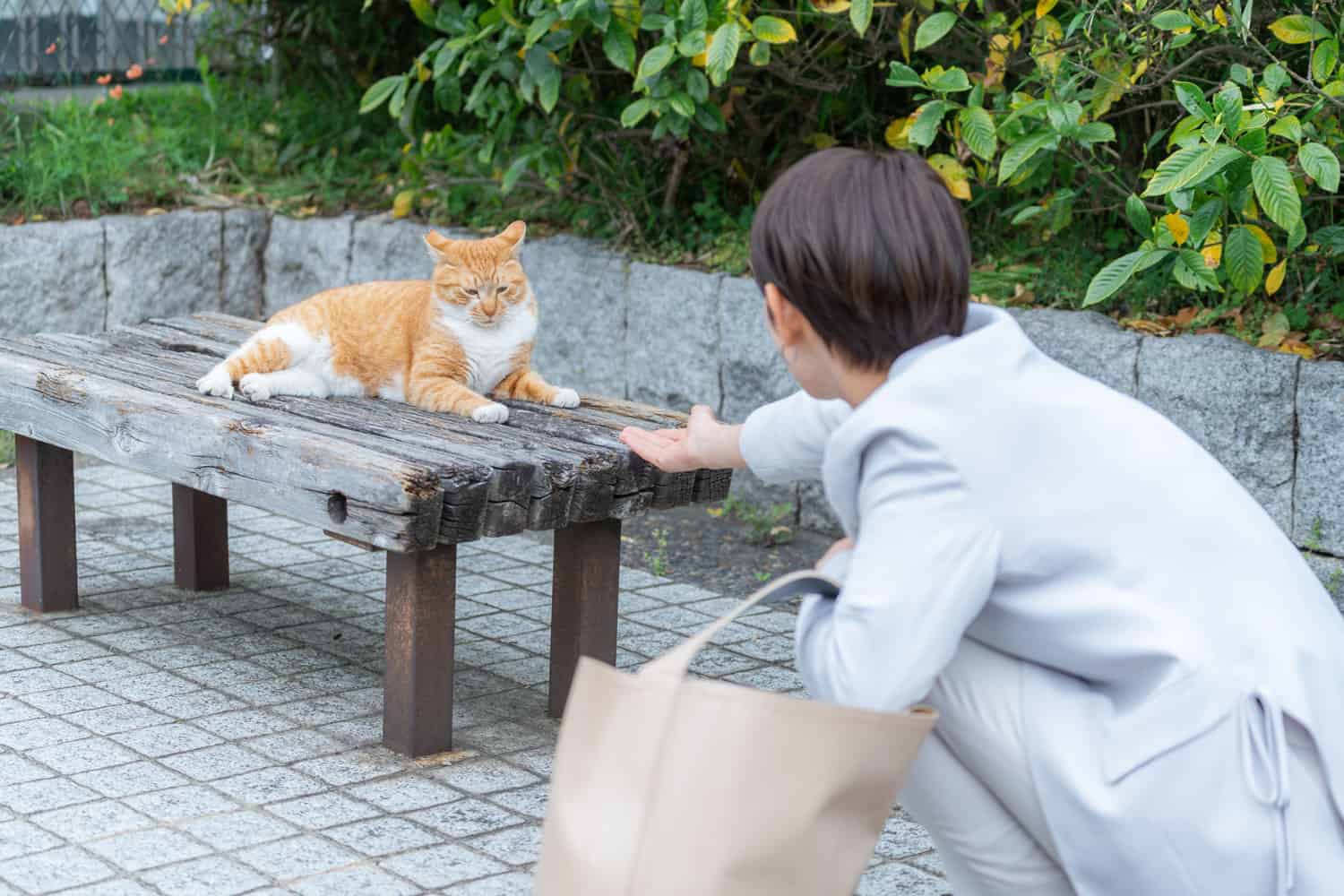
Independently Rehoming Cats
If you prefer to rehome the cats by yourself, online pet adoption sites, such as Itsudemo Satoya Boshu, allow you to post pictures and details of the cats or kittens.
They also provide guidelines for safe adoption and a contract that you can download and use when you find a new home.
Information here is only displayed in Japanese and the site can be quite tricky to navigate. You will need help if you're not fluent in Japanese.
犬、猫、里親さがし「いつでも里親募集中」〜ペットショップ保健所へ行く前に〜
As with the shelters, cats that have been blood tested, vaccinated and neutered or spayed stand the best chance of being adopted.
Initial blood tests and vaccines cost around 10,000 yen. Spays cost upwards of 15,000 yen, neuters are around 10,000 yen
Keep all certificates and receipts from your vet. This will prove that the cat has had a blood test, shots and surgery.
These can be handed over to the new owner. You should also ask for at least as much as you have spent on vet bills in return for the cat.
With pedigree kittens in pet shops going for 100,000 yen or more it's not too much to expect a responsible pet owner to pay.
One thing you should never do is give an animal away for free to a person you don't know very well. Like every country, Japan has its fair share of animal abusers and irresponsible owners.
By asking for a rehoming fee, using a contract and exchanging contact details you can weed out any potentially "bad" adopters.
Lost and abandoned cats in Japan
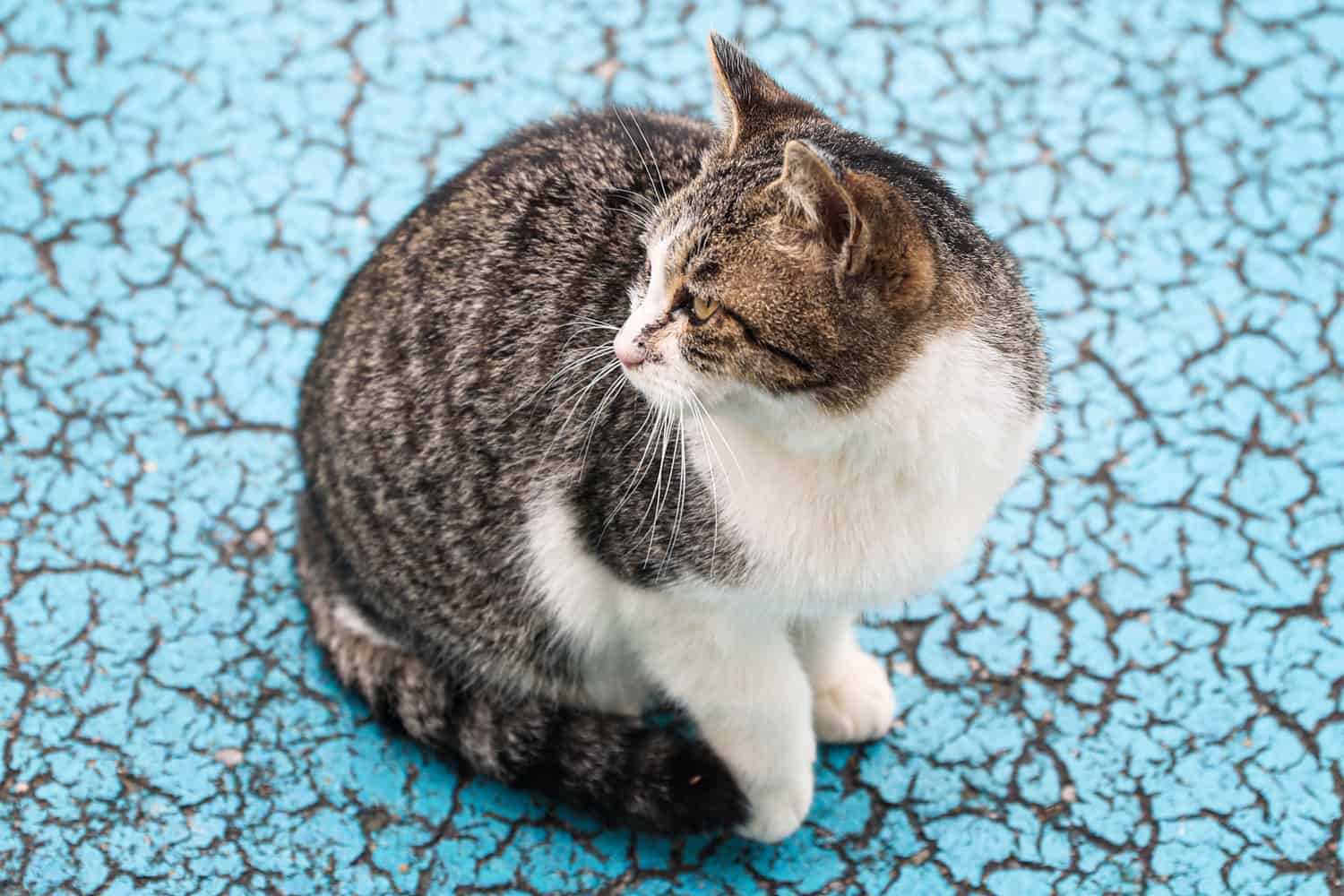
Another way that you may come across a cat that needs help is if you find a former pet that has either been abandoned or got lost.
Sadly lots of pets are abandoned in Japan. They are abandoned for all the same reasons as pets are abandoned anywhere else in the world.
If you find a cat that seems to have been a pet the first thing to do is check that no one is looking for him or her.
Chipping is still quite uncommon in Japan, but it's always worth taking the cat to a local vet and asking them to scan for a chip.
If the cat has been outside for any length of time they will probably need to be checked over by a vet anyway.
Where To Advertise Lost And Found Cats
City halls will have details on their homepage of lost and found cats. The office that deals with animals is called Hokenjyo, written in kanji below.
保健所
Check online to see if the cat you found is listed there. You can post a description and a picture of the cat on the hokenjyo homepage for free.
City hall staff will act as an intermediary. They will deal with any calls from people who think the cat may be theirs.
If at all possible you should keep the cat indoors until you have established whether they have an owner or not.
Hokenjyo will hold animals. However, it's not a good idea to turn a cat or dog over to them until you're sure they will be reunited with their owner.
Japanese law only requires hokenjyo to hold an animal for 72 hours before euthanising.
It varies from city to city, most offices will not euthanise until their holding facility is full. But, please be aware that if no one claims the animals they will eventually be put to sleep.
Obviously it is much better if you keep the cat, whether they are lost or abandoned.
If this is not possible and no one seems to be looking for their lost pet, contact one of the shelters recommended above and ask for help rehoming.
A final thought
Finally, please keep in mind that people in Japan have their own way of doing things.
If you grew up in the West you are probably used to organizations such as the RSPCA, Humane Society or ASPCA that you can turn to for help.
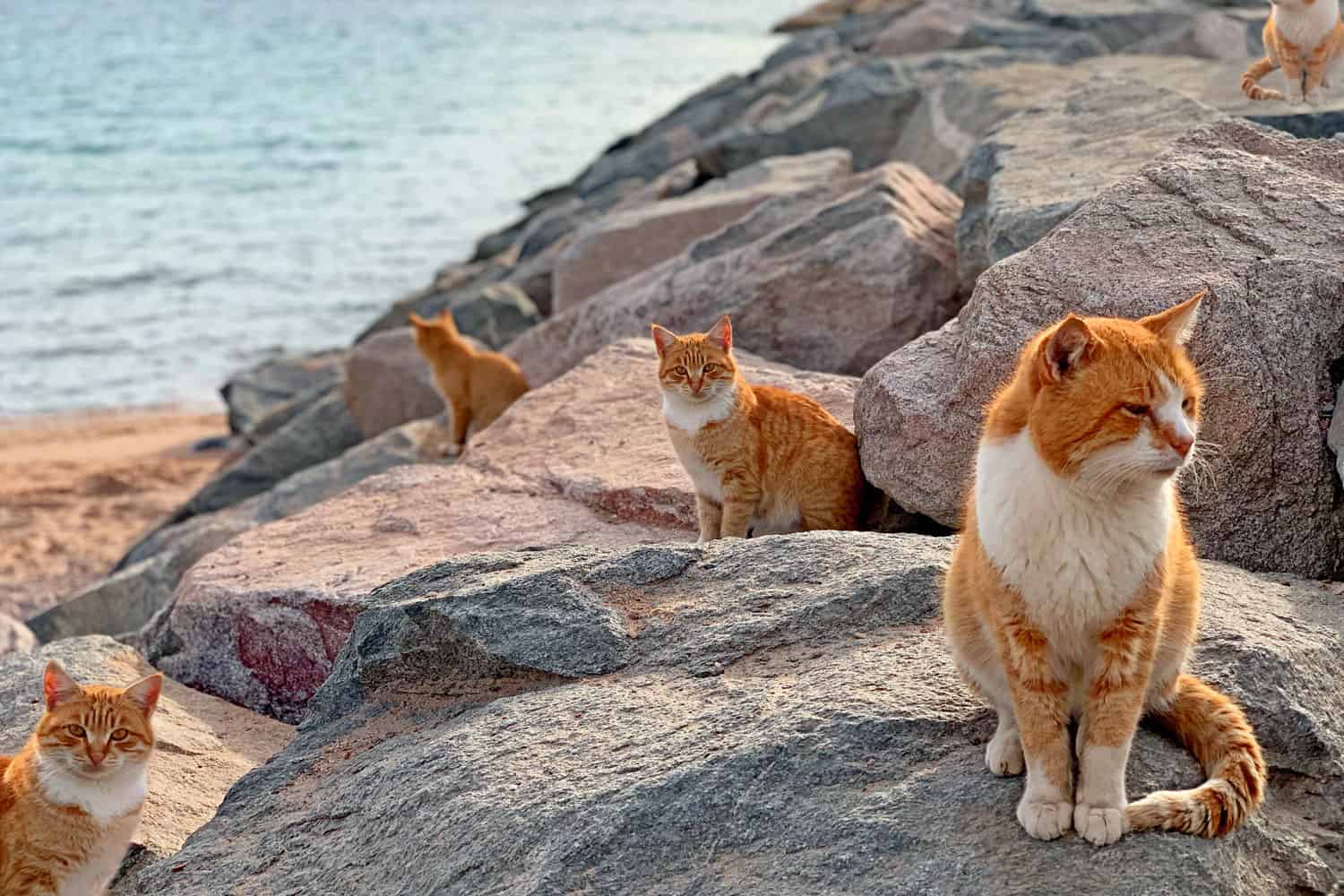
Things are changing in Japan, but we don't have the government-funded organisations concerned with animal welfare that other countries do.
Helping stray or feral cats often comes down to the individual.
It can be expensive, time-consuming, frustrating and downright infuriating at times. But, ultimately it is very rewarding to know you have changed things for the better. Even if it's only for one tiny cat.
SIGN UP FOR THECATSITE'S EMAIL UPDATES >
How about you? Let us know how you're helping ferals where you live in the comments below and in the Care For Strays & Ferals Forum! Share this article too, to inspire your friends and educate others about helping feral cats.
Note: We may get commissions for purchases made through links on this page.




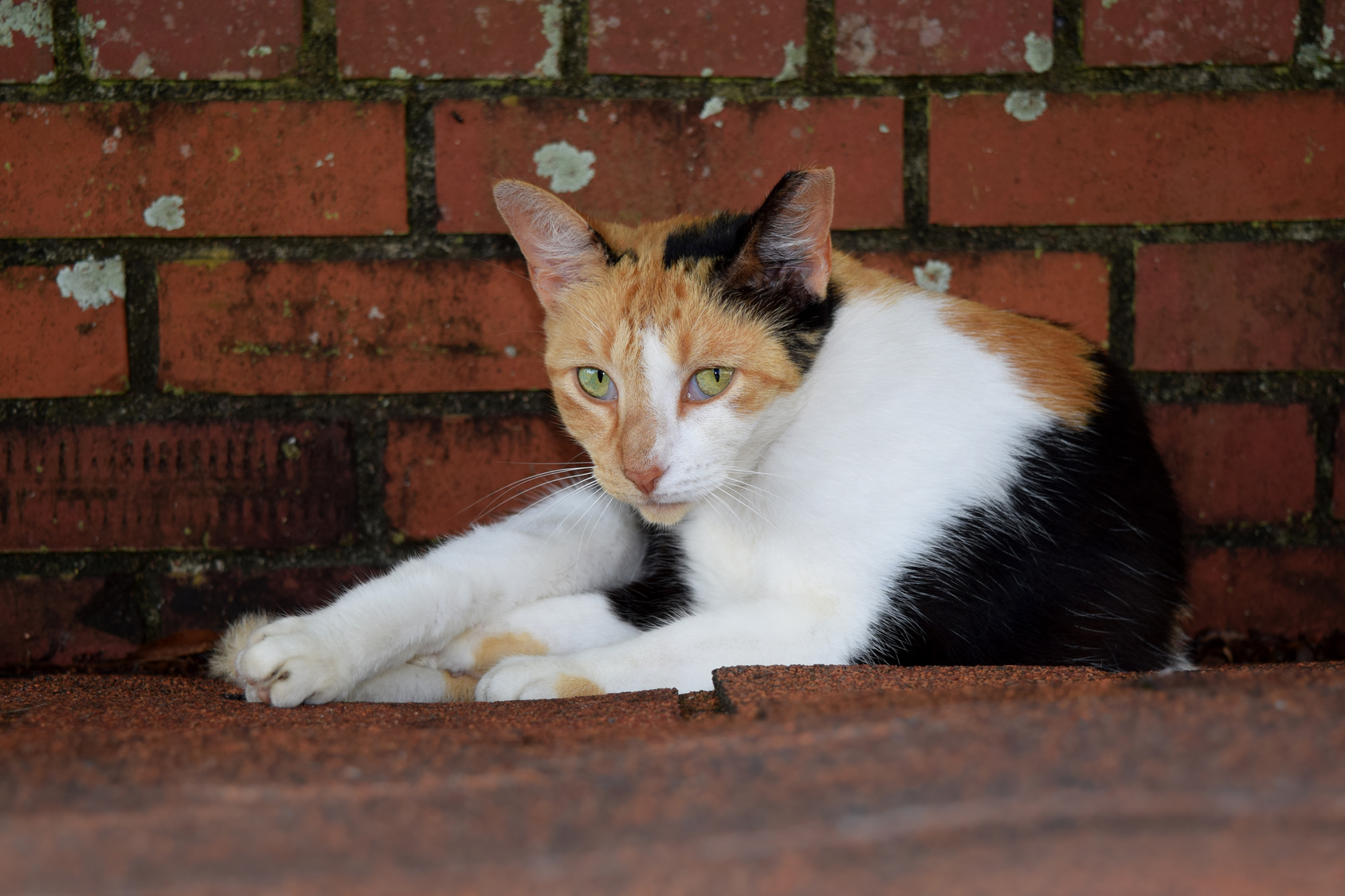


5 comments on “Living In Japan? Here’s How You Can Help Feral “nora Neko” Cats In Your Area”